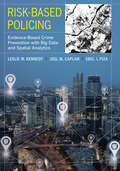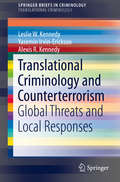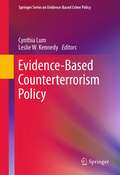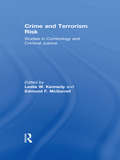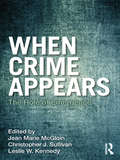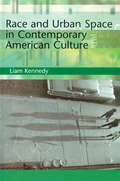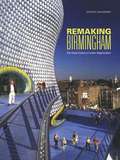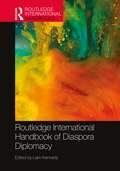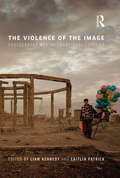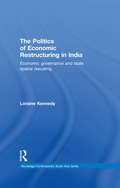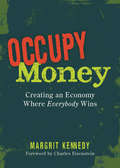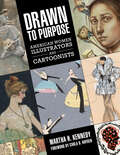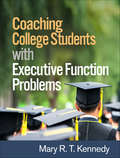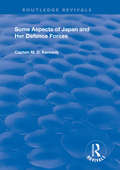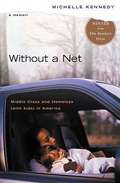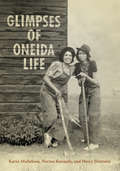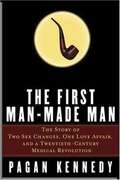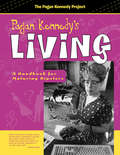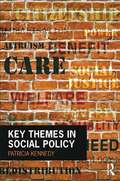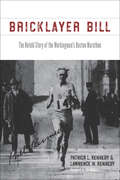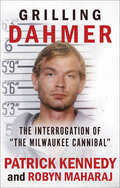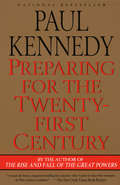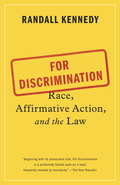- Table View
- List View
Risk-Based Policing: Evidence-Based Crime Prevention with Big Data and Spatial Analytics
by Leslie W. Kennedy Joel M. Caplan Eric L. PizaRisk-based policing is a research advancement that improves public safety, and its applications prevent crime specifically by managing crime risks. In Risk-Based Policing, the authors analyze case studies from a variety of city agencies including Atlantic City, New Jersey; Colorado Springs, Colorado; Glendale, Arizona; Kansas City, Missouri; Newark, New Jersey; and others. They demonstrate how focusing police resources on risky places and basing police work on smart uses of data can address the worst effects of disorder and crime while improving community relations and public safety. Topics include the role of big data; the evolution of modern policing; dealing with high-risk targets; designing, implementing, and evaluating risk-based policing strategies; and the role of multiple stakeholders in risk-based policing. The book also demonstrates how risk terrain modeling can be extended to provide a comprehensive view of prevention and deterrence.
Translational Criminology and Counterterrorism
by Leslie W. Kennedy Yasemin Irvin-Erickson Alexis R. KennedyThis brief focuses on translational criminology practices as they relate to counter-terrorism and homeland security. The work provides a detailed and practical examination of how global threats (such as, terrorism and cybercrime) are managed through local response. It covers emerging strategies in data collection procedures, inter-agency cooperation, and new analytical techniques including risk-terrain modeling. In addition, it presents a common methodology, including steps in risk assessment, risk management, and decision-making, that can be used to frame and analyze global and local threats. The authors examine these issues using examples of how law enforcement responded to specific security threats including the 2013 Boston Marathon bombings, the 2003 terrorist attack in Istanbul, Turkey, and the 2010 Stuxnet attack on the Natanz nuclear facility in Iran. This work expands on existing literature covering the impact that globalization has on cross national threats, drawing on disciplines related to criminology, such as international relations and political science.
Evidence-Based Counterterrorism Policy
by Leslie W. Kennedy Cynthia LumIn the past eight years, there has been a massive increase in government spending on counterterrorism intervention development and implementation. Given this increase, there are two evidence-based policy questions that are important to address: Is there evidence that any of these programs are effective - in other words, can they be shown to be linked to reducing terrorism, terrorist recruiting, or to improving the response and management of terrorist events? Do these interventions have secondary or collateral effects that may be costly, harmful, illegal, beneficial, or otherwise? As Lum and Kennedy discovered in an evaluation research on counterterrorism interventions, only a minuscule number of empirical studies of terrorism exist and there is an almost complete absence of evaluation research on counter-terrorism strategies. This is startling given the enormous increases in the development and use of counter-terrorism programs, as well as spending on counter-terrorism activity. Even more disconcerting was the nature of the evaluations we did find; some programs were shown to either have no discernible effect on terrorism or lead to increases in terrorism. The emphasis of the need for empirical research in evaluating interventions and informing policy cannot be overstated, and is the primary goal of Evidence-Based Counterterrorism Policy.
Crime and Terrorism Risk: Studies in Criminology and Criminal Justice
by Leslie W. Kennedy Edmund F. McGarrellCrime and Terrorism Risk is a collection of original essays and articles that presents a broad overview of the issues related to the assessment and management of risk in the new security age. These original articles show how researchers, experts and the public are beginning to think about crime and terrorism issues in terms of a new risk paradigm that emphasizes establishing a balance between threat and resources in developing prevention and response strategies.
When Crime Appears: The Role of Emergence (Criminology and Justice Studies)
by Leslie W. Kennedy Jean Marie McGloin Christopher J. SullivanIn recent years, the idea of emergence, which suggests that observed patterns in behavior and events are not fully reductive and stem from complex lower-level interactions, has begun to take hold in the social sciences. Criminologists have started to use this framework to improve our general understanding of the etiology of crime and criminal behavior. When Crime Appears: The Role of Emergence is concerned with our ability to make sense of the complex underpinnings of the end-stage patterns and events that we see in studying crime and offers an early narrative on the concept of emergence as it pertains to criminological research. Collectively, the chapters in this volume provide a sense of why the emergence framework could be useful, outlines its core conceptual properties, provides some examples of its potential application, and presents some discussion of methodological and analytic issues related to its adoption.
Race and Urban Space in American Culture (Tendencies: Identities, Texts, Cultures Ser.)
by Liam KennedyFirst published in 2000. Routledge is an imprint of Taylor & Francis, an informa company.
Remaking Birmingham: The Visual Culture of Urban Regeneration
by Liam KennedyThe city of Birmingham offers a particularly rich case study on urban regeneration as it strives to build a new city image. Positioned between decline and regeneration, the landscape of the city and its environs collages old and new, producing dramatic contrasts - of industrial and post-industrial urbanisms of crumbling brutalism and spectacular flagship developments, of Victorian housing and diverse cultural lifestyles - that compound the aesthetic and socio-economic means of regeneration. This visually exciting book also reflects upon and extends current debates about public space, cultural zoning and the futures of cities.
Routledge International Handbook of Diaspora Diplomacy (Routledge International Handbooks)
by Liam KennedyThe Routledge International Handbook of Diaspora Diplomacy is a multidisciplinary collection of writings by leading scholars and practitioners from around the world. It reflects on the geopolitical and technological shifts that have led to the global emergence of this form of diplomacy and provides detailed examples of how governments, intergovernmental organizations (IGOs), non-governmental organizations (NGOs) and corporations are engaging diasporas as transnational agents of intervention and change.The organization in six thematic parts provides for focused coverage of key issues, sectors and practices, while also building a comprehensive guide to the growing field. Each section features an introduction authored by the Editor, designed to provide useful contextual information and to highlight linkages between the chapters. Cross-disciplinary research and commentary is a key feature of the Handbook, providing diverse yet overlapping perspectives on diaspora diplomacy.• Part 1: Mapping Diaspora Diplomacy• Part 2: Diaspora Policies and Strategies• Part 3: Diaspora Networks and Economic Development• Part 4: Long-Distance Politics• Part 5: Digital Diasporas, Media and Soft Power• Part 6: Advancing Diaspora Diplomacy StudiesThe Routledge International Handbook of Diaspora Diplomacy is a key reference point for study and future scholarship in this nascent field.
Routledge International Handbook of Diaspora Diplomacy (Routledge International Handbooks)
by Liam KennedyThe Routledge International Handbook of Diaspora Diplomacy is a multidisciplinary collection of writings by leading scholars and practitioners from around the world. It reflects on the geopolitical and technological shifts that have led to the global emergence of this form of diplomacy and provides detailed examples of how governments, intergovernmental organizations (IGOs), non-governmental organizations (NGOs) and corporations are engaging diasporas as transnational agents of intervention and change.The organization in six thematic parts provides for focused coverage of key issues, sectors and practices, while also building a comprehensive guide to the growing field. Each section features an introduction authored by the Editor, designed to provide useful contextual information and to highlight linkages between the chapters. Cross-disciplinary research and commentary is a key feature of the Handbook, providing diverse yet overlapping perspectives on diaspora diplomacy.• Part 1: Mapping Diaspora Diplomacy• Part 2: Diaspora Policies and Strategies• Part 3: Diaspora Networks and Economic Development• Part 4: Long-Distance Politics• Part 5: Digital Diasporas, Media and Soft Power• Part 6: Advancing Diaspora Diplomacy StudiesThe Routledge International Handbook of Diaspora Diplomacy is a key reference point for study and future scholarship in this nascent field.
The Violence of the Image: Photography and International Conflict (International Library Of Visual Culture Ser.)
by Liam KennedyPhotography has visualized international relations and conflicts from the midnineteenth century onwards and continues to be an important medium in framing the worlds of distant, suffering others. Although photojournalism has been challenged in recent decades, claims that it is dead are premature. The Violence of the Image examines the roles of image producers and the functions of photographic imagery in the documentation of wars, violent conflicts and human rights issues; tackling controversial ideas such as 'witnessing', the making of appeals based on displays of human suffering and the much-cited concept of 'compassion fatigue'. In the twenty-first century, the advent of digital photography, camera phones and socialmedia platforms has altered the relationship between photographers, the medium and the audience- as well as contributing to an ongoing blurring of the boundaries between news and entertainment and professional and amateur journalism. The Violence of the Image explores how new vernacular and artistic modes of photographic production articulate international friction.This innovative, timely book makes a major contribution to discussions about the power of the image in conflict.
The Politics of Economic Restructuring in India: Economic Governance and State Spatial Rescaling (Routledge Contemporary South Asia Series)
by Loraine KennedyState re-scaling is the central concept mobilized in this book to interpret the political processes that are producing new economic spaces in India. In the quarter century since economic reforms were introduced, the Indian economy has experienced strong growth accompanied by extensive sectoral and spatial restructuring. This book argues that in this reformed institutional context, where both state spaces and economic geographies are being rescaled, subnational states play an increasingly critical role in coordinating socioeconomic activities. The core thesis that the book defends is that the reform process has profoundly reconfigured the Indian state’s rapport with its territory at all spatial scales, and these processes of state spatial rescaling are crucial for comprehending emerging patterns of economic governance and growth. It demonstrates that the outcomes of India’s new policy regime are not only the product of impersonal market forces, but that they are also the result of endogenous political strategies, acting in conjunction with the territorial reorganisation of economic activities at various scales, ranging from local to global. Extensive empirical case material, primarily from field-based research, is used to support these theoretical assertions. Scholars of political economy, political and economic geography, industrial development, development studies and Asian Studies will find this a stimulating and innovative contribution to the study of the political economy in the developing countries.
Occupy Money
by Margrit KennedyAs a medium of exchange, money is one of the most ingenious inventions of mankind, as it facilitates the trade of goods and services and allows for specialization and the division of labor. However, compound interest and inflation have caused our monetary system to balloon to the point where bailing out banks, large corporations, and even entire countries will not prevent a complete breakdown of the global economy - unless we change the system in fundamental ways.It's time for a grassroots movement to knock conventional money off its pedestal and replace it with a fresh paradigm that puts people before profits. A guide not only for the 99% but also for the 1%, Occupy Money demonstrates that the creation of a stable and sustainable monetary system will reflect real wealth, rather than the smoke and mirrors of speculative profit, thus providing an alternative to the Age of Austerity. This vision can be realized through such creative initiatives as: Establishing time banks and complementary currencies geared to specific services such as health and education Eliminating interest through interest-free loans and "demurrage", which rewards currency circulation Re-localizing economies through regional currencies.For many years financial insiders have hidden economic truths by describing them in arcane terms that no layperson can understand. Occupy Money uses clear, simple and concise language to explain how money will serve people instead of people serving money, and in doing so it issues a challenge to the very foundations of conventional economic doctrine. A must-read.Margrit Kennedy is the author of the international bestseller Interest and Inflation-Free Money, an outspoken critic of the current global economic system and a renowned advocate of alternative regional and complementary currencies.
Drawn to Purpose: American Women Illustrators and Cartoonists
by Martha H. KennedyWinner of the 2019 Eisner Award for the Best Comics-Related BookPublished in partnership with the Library of Congress, Drawn to Purpose: American Women Illustrators and Cartoonists presents an overarching survey of women in American illustration, from the late nineteenth into the twenty-first century. Martha H. Kennedy brings special attention to forms that have heretofore received scant notice—cover designs, editorial illustrations, and political cartoons—and reveals the contributions of acclaimed cartoonists and illustrators, along with many whose work has been overlooked. Featuring over 250 color illustrations, including eye-catching original art from the collections of the Library of Congress, Drawn to Purpose provides insight into the personal and professional experiences of eighty women who created these works. Included are artists Roz Chast, Lynda Barry, Lynn Johnston, and Jillian Tamaki. The artists' stories, shaped by their access to artistic training, the impact of marriage and children on careers, and experiences of gender bias in the marketplace, serve as vivid reminders of social change during a period in which the roles and interests of women broadened from the private to the public sphere. The vast, often neglected, body of artistic achievement by women remains an important part of our visual culture. The lives and work of the women responsible for it merit much further attention than they have received thus far. For readers who care about cartooning and illustration, Drawn to Purpose provides valuable insight into this rich heritage.
Coaching College Students with Executive Function Problems
by Mary R. Kennedy Mckay Moore SohlbergAlthough executive function difficulties are often addressed in school-age children, there are few resources showing how to help these individuals when they are older. This book presents a dynamic coaching model that helps college students become self-regulated learners by improving their goal-setting, planning, time management, and organizational skills. Ideal for use with students with attention-deficit/hyperactivity disorder (ADHD), learning disabilities, acquired brain injury, and other challenges, Mary R. T. Kennedy's approach incorporates motivational interviewing and emphasizes practical problem solving. User-friendly features include numerous concrete examples, sample dialogues, and print and online resource listings. In a large-size format for easy photocopying, the book contains 21 reproducible forms. Purchasers get access to a Web page where they can download and print the reproducible materials for repeated use.
Some Aspects of Japan and Her Defence Forces (Routledge Revivals)
by M.D. Cpt. KennedyFirst published in 1928, this collection of previously published articles entered the fray of rising tensions between Japan and Anglophone countries such as Britain, Australia and America. Japanese expansion into China had led to fortification of Britain’s Sembawang Naval Base in Singapore and Pearl Harbour in America as deterrents against the increasingly ambitious Japanese Empire. ‘The bogey of Japanese militarism’ had become ever more feared, in what the author felt was a deplorable lack of understanding about Japan and its affairs. Highlighting parallels between Japan sixty years prior and China in the present, the author began with an exploration of the effect of Far Eastern and Pacific affairs on the Anglo-Japanese alliance which, for twenty years, had formed the basis of Japan’s national defence policy. He then proceeded with an exploration of Japan’s attitudes towards contemporary issues such as armament reduction, America’s immigration laws, Britain’s Singapore base, the Chinese situation and Soviet activities in Manchuria with the hope of maintaining peace in the Far East and the Pacific.
Without a Net: Middle Class and Homeless (with Kids) in America
by Michelle KennedyMichelle Kennedy had a typical middle class American childhood in Vermont. She attended college, interned in the U.S. Senate, married her high school sweetheart and settled in the suburbs of D.C. But the comfortable life she was building quickly fell apart. At age twenty-four Michelle was suddenly single, homeless, and living out of a car with her three small children. She waitressed night shifts while her kids slept out in the diner's parking lot. She saved her tips in the glove compartment, and set aside a few quarters every week for truck stop showers for her and the kids. With startling humor and honesty, Kennedy describes the frustration of never having enough money for a security deposit on an apartment--but having too much to qualify for public assistance. Without A Net is a story of hope. Michelle Kennedy survives on her wits, a little luck, and a lot of courage. And in the end, she triumphs.
Sideways on a Scooter: Life and Love in India
by Miranda KennedyWhen twentysomething reporter Miranda Kennedy leaves her job in New York City and travels to India with no employment prospects, she longs to immerse herself in the turmoil and excitement of a rapidly developing country. What she quickly learns in Delhi about renting an apartment as a single woman--it's next to impossible--and the proper way for women in India to ride scooters--perched sideways--are early signs that life here is less Westernized than she'd counted on. Living in Delhi for more than five years, and finding a city pulsing with possibility and hope, Kennedy experiences friendships, love affairs, and losses that open a window onto the opaque world of Indian politics and culture--and alter her own attitudes about everything from food and clothes to marriage and family. Along the way, Kennedy is drawn into the lives of several Indian women, including her charismatic friend Geeta--a self-described "modern girl" who attempts to squeeze herself into the traditional role of wife and mother; Radha, a proud Brahmin widow who denies herself simple pleasures in order to live by high-caste Hindu principles; and Parvati, who defiantly chain-smokes and drinks whiskey, yet feels compelled to keep her boyfriend a secret from her family. In her effort to understand the hopes and dreams that motivate her new friends, Kennedy peels back India's globalized image as a land of call centers and fast-food chains and finds an ancient place where, in many ways, women's lives have scarcely changed for centuries. Incisive, witty, and written with a keen eye for the lush vibrancy of the country that Kennedy comes to love, Sideways on a Scooter is both a remarkable memoir and a cultural revelation.From the Hardcover edition.
Glimpses of Oneida Life
by Norma Kennedy Karin Michelson Mercy A. DoxtatorGlimpses of Oneida Life is a remarkable compilation of modern stories of community life at the Oneida Nation of the Thames Settlement and the surrounding area. With topics ranging from work experiences and Oneida customs to pranks, humorous encounters, and ghost stories, these fifty-two unscripted narrations and conversations in Oneida represent a rare collection of first-hand Iroquoian reflections on aspects of daily life and culture not found in print elsewhere.Each text is presented in Oneida with both an interlinear, word-by-word translation and a more colloquial translation in English. The book also contains a grammatical sketch of the Oneida language by Karin Michelson, co-author of the Oneida-English/English-Oneida Dictionary, that describes how words are structured and combined into larger linguistic structures, thus allowing Glimpses to be used as a teaching text as well.The engrossing tales in Glimpses of Oneida Life will be a valuable resource for linguists and language learners, a useful source for those studying the history and culture of Iroquois people in the twentieth-century, and an entertaining read for anyone interested in everyday First Nations life in southern Ontario.
The First Man-Made Man: The Story of Two Sex Changes, One Love Affair, and a Twentieth-Century Medical Revolution, First Edition
by Pagan KennedyIn the 1920s when Laura Dillon felt like a man trapped in a woman's body, there were no words to describe her condition; transsexuals had yet to enter common usage. And there was no known solution to being stuck between the sexes. Laura Dillon did all she could on her own: she cut her hair, dressed in men's clothing, bound her breasts with a belt. But in a desperate bid to feel comfortable in her own skin, she experimented with breakthrough technologies that ultimately transformed the human body and revolutionized medicine. From upper-class orphan girl to Oxford lesbian, from post-surgery romance with Roberta Cowell (an early male-to-female) to self-imposed exile in India, Michael Dillon's incredible story reveals the struggles of early transsexuals and challenges conventional notions of what gender really means.
Pagan Kennedy's Living: A Handbook for Maturing Hipsters
by Pagan KennedyPagan Kennedy first captured the hearts of America with her personal zine Pagan's Head. Drawing from this source, she presents not only the zine-world standards, but also includes some helpful dating tips, such as "Pretend to go to the bathroom and never come back." Cruise through this book only if you want an extremely entertaining read and the opportunity to develop an unhealthy fixation on the fabulous Ms. Kennedy. Originally published in 1997, this new edition features "Where are they now" updates.
Key Themes in Social Policy
by Patricia KennedyKey Themes in Social Policy provides an accessible and authoritative introduction to the key concepts used in social policy, from autonomy to wellbeing. With over 100 ideas discussed, this is a comprehensive student guide and is designed to help readers to gain a deeper understanding of major debates and issues. Each entry: explains the origin of the word discusses its relationship to the social sciences describes its relevance to social policy and how widespread its use is outlines some of the key thinkers and research on the topic and gives suggestions for further reading. Making it easy to understand and use the most important ideas in the area, this is an essential companion for all students taking social policy courses.
Bricklayer Bill: The Untold Story of the Workingman's Boston Marathon
by Patrick L. Kennedy Lawrence W. KennedyTwo weeks after the United States officially entered World War I, Irish American "Bricklayer Bill" Kennedy won the Boston Marathon wearing his stars-and-stripes bandana, rallying the crowd of patriotic spectators. Kennedy became an American hero and, with outrageous stories of his riding the rails and sleeping on pool tables, a racing legend whose name has since appeared in almost every book written on the Boston Marathon. When journalist Patrick Kennedy and historian Lawrence Kennedy unearthed their uncle's unpublished memoir, they discovered a colorful character who lived a tumultuous life, beyond his multiple marathons. The bricklayer survived typhoid fever, a five-story fall, auto and train accidents, World War action, Depression-era bankruptcy, decades of back-breaking work, and his own tendency to tipple. In many ways, Bill typified the colorful, newly emerging culture and working-class ethic of competitive long-distance running before it became a professionalized sport. Bricklayer Bill takes us back to another time, when bricklayers, plumbers, and printers could take the stage as star athletes.
Grilling Dahmer: The Interrogation Of "The Milwaukee Cannibal"
by Patrick Kennedy Robyn MaharajThe Milwaukee detective who interrogated the notorious serial killer shares a vivid chronicle of what was revealed during the weeks-long encounter. In the late hours of July 22, 1991, Detective Patrick &“Pat&” Kennedy of the Milwaukee Police Department was asked to respond to a possible homicide. Little did he know that he would soon be delving into the dark mind of one of America's most notorious serial killers, the &“Milwaukee Cannibal&” Jeffrey Dahmer. As the media clamored for details, Kennedy spent the next six weeks, sixteen hours a day, locked in an interrogation room with Dahmer. There the thirty-one-year-old killer described in lurid detail how he lured several young men to his apartment where he strangled, sexually assaulted, dismembered, and in some cases, cannibalized his victims. In Grilling Dahmer,Kennedy takes readers inside the mind of evil as he patiently, meticulously, listens to unspeakable horrors.
Preparing for the Twenty-First Century
by Paul KennedyKennedy's groundbreaking book The Rise and Fall of the Great Powers helped to reorder the current priorities of the United States. Now, he synthesizes extensive research on fields ranging from demography to robotics to draw a detailed, persuasive, and often sobering map of the very near future--a bold work that bridges the gap between history, prophecy, and policy.From the Trade Paperback edition.
For Discrimination
by Randall KennedyIn the wake of the Supreme Court's recent decision regarding Fisher v. University of Texas, For Discrimination is at once the definitive reckoning with one of America's most explosively contentious and divisive issues and a principled work of advocacy for clearly defined justice. What precisely is affirmative action, and why is it fiercely championed by some and just as fiercely denounced by others? Does it signify a boon or a stigma? Or is it simply reverse discrimination? What are its benefits and costs to American society? What are the exact indicia determining who should or should not be accorded affirmative action? When should affirmative action end, if it must? Randall Kennedy, Harvard Law School professor and author of such critically acclaimed and provocative books as Race, Crime, and the Law and the national best-seller Nigger: The Strange Career of a Troublesome Word, gives us a concise, gimlet-eyed, and deeply personal conspectus of the policy, refusing to shy away from the myriad complexities of an issue that continues to bedevil American race relations. With pellucid reasoning, Kennedy accounts for the slipperiness of the term "affirmative action" as it has been appropriated by ideologues of every stripe; delves into the complex and surprising legal history of the policy; coolly analyzes key arguments pro and con advanced by the left and right, including the so-called color-blind, race-neutral challenge; critiques the impact of Supreme Court decisions on higher education; and ponders the future of affirmative action.
